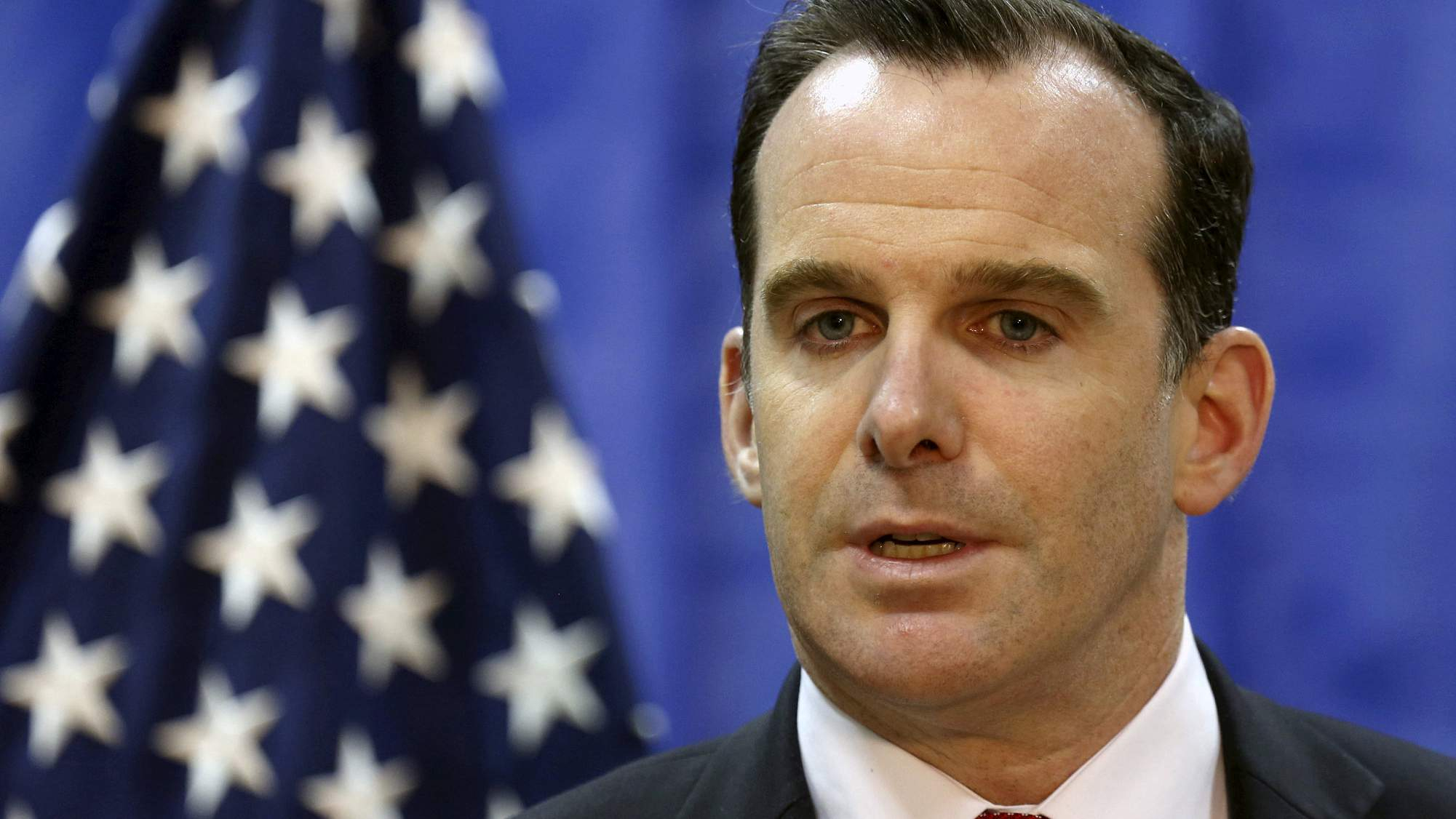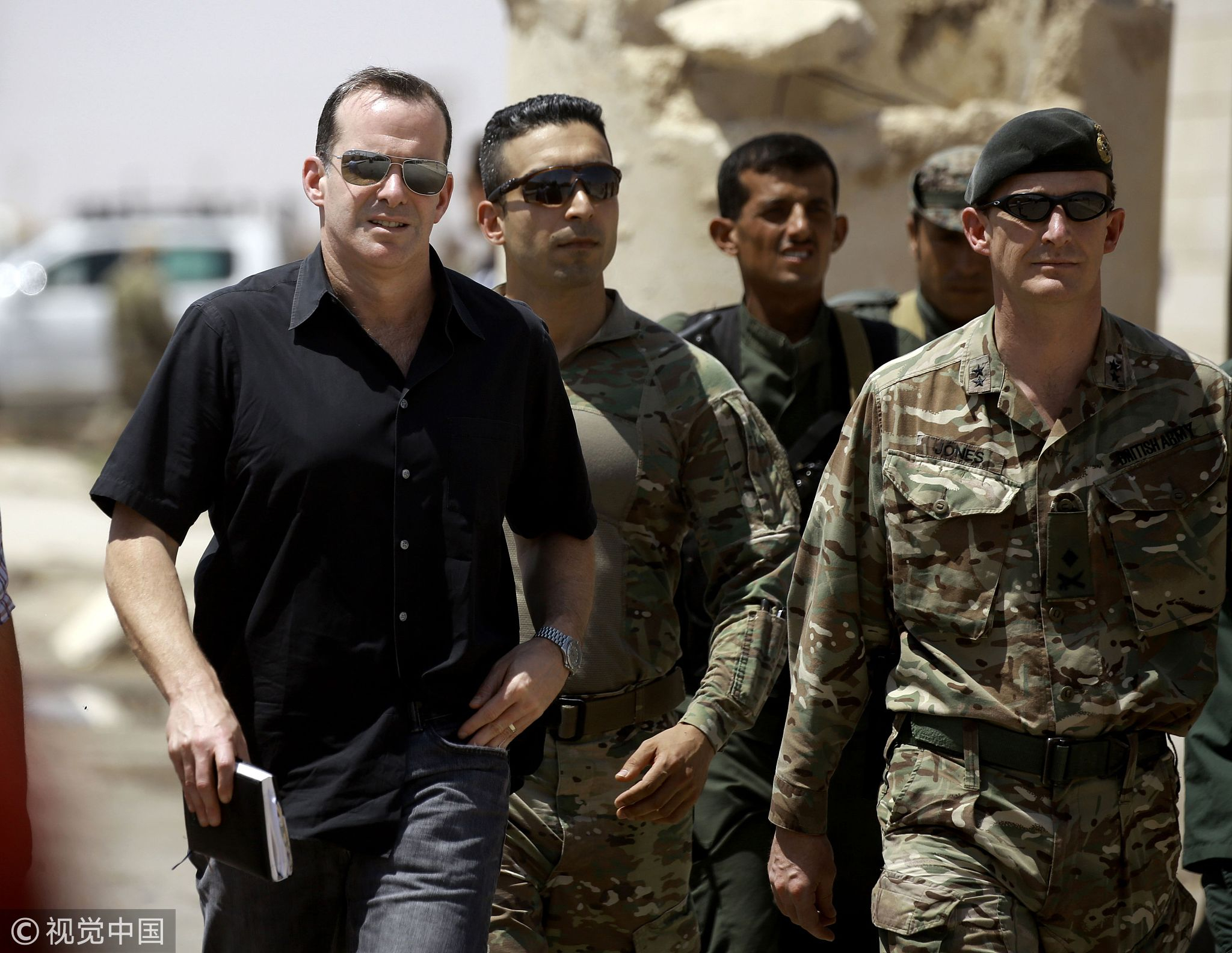
Politics
08:13, 23-Dec-2018
Top U.S. envoy in fight against ISIL resigns: official
Updated
07:23, 26-Dec-2018
CGTN

Brett McGurk, the special U.S. envoy to the coalition fighting ISIL, has resigned, a State Department official said on Saturday.
His resignation, effective December 31, comes just after Donald Trump abruptly ordered the withdrawal of U.S. troops from Syria as well as the announcement that U.S. defense secretary James Mattis was quitting, citing key disagreements with the U.S. president.
Last week McGurk, a Barack Obama appointee who Trump kept on, said, "nobody is declaring a mission accomplished" in the battle against ISIL, just days before the president's stunning announcement of victory against the jihadist movement.

Brett McGurk (L), U.S. special presidential envoy for the Global Coalition to Counter ISIL, and Rupert Jones (R), deputy commander of Combined Joint Task Force – Operation Inherent Resolve (CJTF-OIR), arrive for a meeting with the Raqa Civil Council in the northern Syrian village of Ain Issa, August 17, 2017. /VCG Photo
Brett McGurk (L), U.S. special presidential envoy for the Global Coalition to Counter ISIL, and Rupert Jones (R), deputy commander of Combined Joint Task Force – Operation Inherent Resolve (CJTF-OIR), arrive for a meeting with the Raqa Civil Council in the northern Syrian village of Ain Issa, August 17, 2017. /VCG Photo
Trump, who postponed his holiday vacation as failed budget talks triggered a partial U.S. government shutdown, again on Saturday said ISIL is "largely defeated."
"When I became President, ISIS (ISIL) was going wild," the president tweeted. "Now ISIS (ISIL) is largely defeated and other local countries, including Turkey, should be able to easily take care of whatever remains. We're coming home!"
McGurk reportedly said in his resignation letter that ISIL militants were in fact not defeated, and that prematurely withdrawing U.S. troops could foster conditions allowing the jihadists to amass power in the region once more.
The 45-year-old top envoy was set to leave his position in February, but reportedly felt he could no longer continue in the job after Trump's declaration.
The troop pullout will leave thousands of Kurdish fighters, which the Pentagon spent years training and arming against ISIL, vulnerable to Turkish attack.
"It would be reckless if we were just to say, well, the physical caliphate is defeated, so we can just leave now," McGurk had told journalists earlier this month.
"I think anyone who's looked at a conflict like this would agree with that."
McGurk has served as the U.S. envoy to the Global Coalition to Counter the ISIL since 2015.
He also served as the deputy assistant secretary of state for Iraq and Iran and worked under Republican President George W. Bush as a senior official on Iraq and Afghanistan.
In an email announcing his decision to his colleagues obtained by The New York Times, McGurk called Trump's move "a shock" and "a complete reversal of policy that was articulated to us."
"It left our coalition partners confused and our fighting partners bewildered," he said, according to the paper.
"I worked this week to help manage some of the fallout but, as many of you heard in my meetings and phone calls, I ultimately concluded that I could not carry out these new instructions and maintain my integrity."
Source(s): AFP

SITEMAP
Copyright © 2018 CGTN. Beijing ICP prepared NO.16065310-3
Copyright © 2018 CGTN. Beijing ICP prepared NO.16065310-3